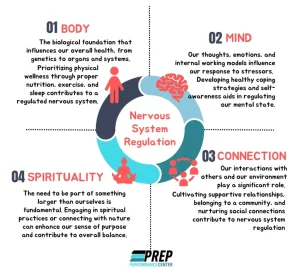
We’ve all heard the adage “seeing the glass as half full.” Now, there is evidence to support that adopting this mindset may actually improve health outcomes.
Researchers encourage health care providers to place greater importance on patients’ mindsets and social context, which has been found to significantly impact physical healing. Here are just a few ways positive thinking can improve life:
Positive Thinking
Positive thinking involves looking at life through an optimistic lens. Even when bad things occur, positive thinkers look for silver linings. Positive thinking also allows individuals to control their thoughts and emotions more easily.
Positive thinkers tend to be more resilient against stress and illness because they tend to lead healthier lifestyles and avoid engaging in harmful practices, like smoking or imbibing too much alcohol.
Though positive thinking has been linked with improved outcomes, experts do not endorse certain forms of positive thinking such as the law of attraction. Such beliefs could actually contribute to depression in some instances.
Note that how you think can have an effect on how you feel; however, don’t use negative thinking to shame or blame yourself for health challenges. If you find yourself experiencing overwhelming sadness or depression, speak to a health care provider about psychotherapy or other mental health options to address and alleviate those emotions in a constructive manner and allow your healing journey to start.
Gratitude
Cultivating gratitude may sound simple, but research shows it to be an effective way to lift your mood, find relief from negativity, foster stronger relationships and shift how we view ourselves. One simple practice for cultivating gratitude is tuning into all your senses to appreciate all you have to be grateful for – Try this guided meditation from HelpGuide as an introduction.
Think of three things you are thankful for every night before sleeping, then hold onto those thoughts even on an especially rough day.
Another way to foster gratitude is to express it towards others. Be it a coffee date with friends or an unexpected present from loved ones, showing your appreciation helps reinforce that they value you as a person and internalize this thought. Plus, research suggests that gratitude could lead to improved sleep and increased self-control!
Believing in Yourself
If you want to use positive thinking as a strategy for overcoming challenges, keep this in mind: your thoughts have the power to alter or shape any situation you face. While pessimistic attitudes may come naturally to some individuals, optimism can be learned and nurtured over time.
Start by identifying areas in your life where you tend to think negatively – such as an event, daily routine or relationship. Once identified, find ways of reframing those thoughts; for instance if fidgeting or twirling your hair becomes an anxious habit try taking control and practicing a power pose instead. Additionally, focus on your strengths daily – one study showed this strategy increased happiness while decreasing depression by the end of week!
Staying on track and keeping a strong mindset requires spending time around encouraging individuals. Negativity should only ever be used as a tool, never an absolute law to be observed.
Self-Love
Love is a power that can heal both body and mind. Studies demonstrate the positive benefits of loving yourself such as lower stress levels, increase oxytocin production and strengthening immunity systems. Therefore it’s vital that any act of self-love include an element of self-care.
Self-love can take many forms. From eating a balanced diet and exercising regularly to practising mindfulness meditation and avoiding toxic relationships and behaviors. Self-love teaches us to value ourselves, including our mental and emotional well-being; setting boundaries; setting them firm when people drain your energy or engage in negative self-talk or make unhelpful comparisons that deplete energy reserves and deplete emotional resources.
Learning to love yourself may take some effort and time, but it is worth your while. Take time each day to be kind to yourself and celebrate your progress. Keep a gratitude journal as a way of remembering all that is good in your life; try not dwelling on circumstances outside your control and focus on gratitude instead. Seeking help from a therapist could also be useful.







